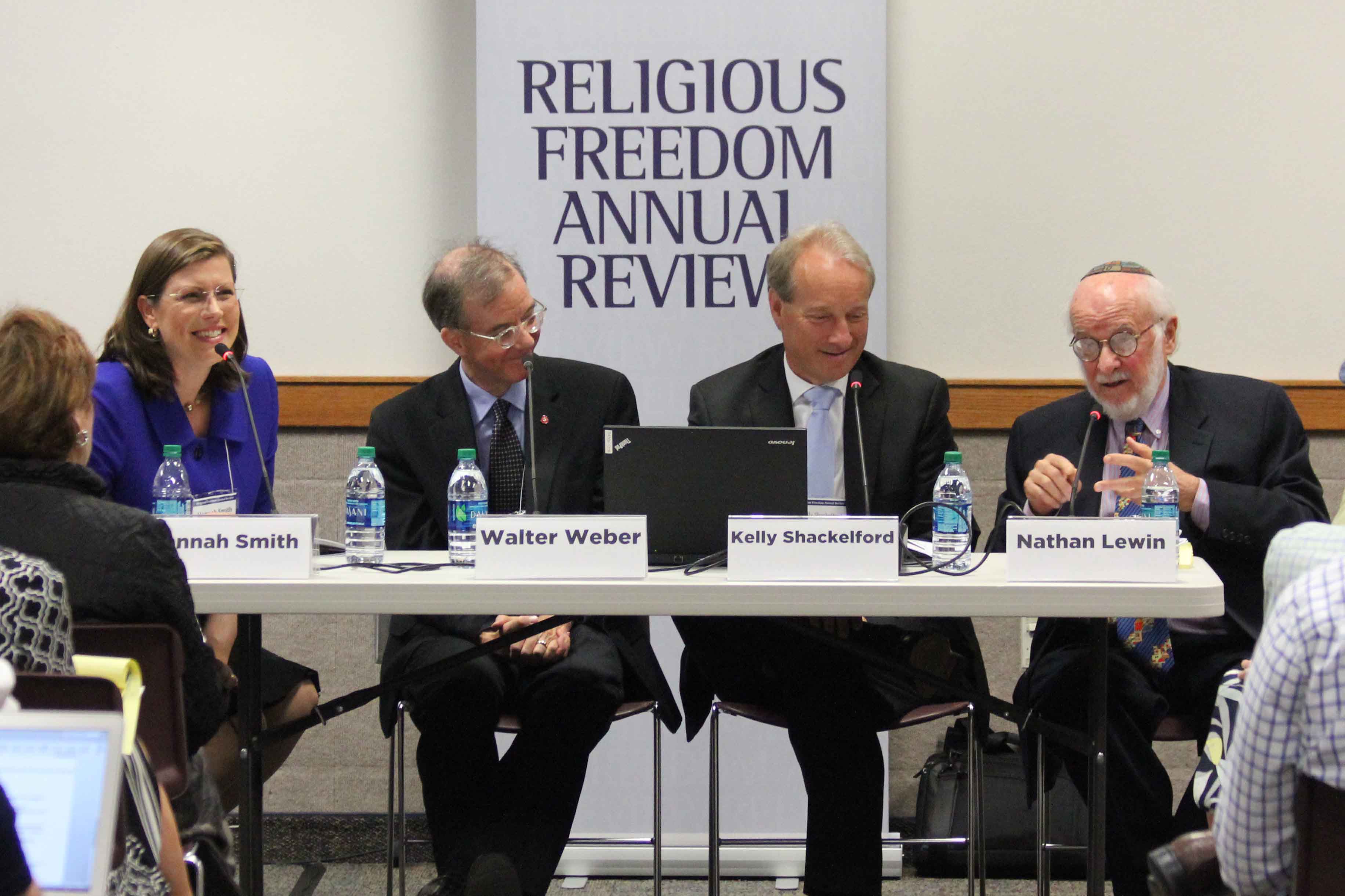Workshop: Recent Legal Religious Freedom Developments – Nathan Lewin, Kelly Shackelford, Walter Weber

by Chase Olsen, 2018 ICLRS Student Fellow
In a survey of legal issues, debates, and Supreme Court cases surrounding religious freedom moderated by ICLRS Senior Fellow Hannah Clayson Smith, panelists Walter Weber, Kelly Shackelford, and Nathan Lewin weighed in on current trends in the United States.
The session began with a brief explanation of several key issues and debates in the courts. Walter Weber, Senior Counsel for the American Center for Law and Justice, touched on issues such as state coercion of activity, speech, or complicity in activities contrary to someone’s religious convictions.
State coercion of action, speech, and complicity, are almost constantly at issue. And many questions about them come before the courts regularly. Should an individual be forced to perform an activity that is contrary to their religious belief such as an abortion? Should an individual be required to say something contrary to their religion or refrain from saying something that is about or promotes their religion? Should businesses or individuals be required to be a part of an activity to which they morally object? For example, must a florist or baker who does not want to be a part of a same-sex marriage be required to offer their services?
Other issues are found in the realm of education and schools. Schools are worried that if they’re too favorable to a religion, they will be sued by organizations such as the ACLU. On the other hand, if a school goes too far in preventing students from exercising their religion, they might get sued by organizations such as the ACLJ.
This sort of catch-22 situation for schools brings with it difficult questions for school teachers and administrators. For example, we know that teachers can’t lead prayers in public schools, but can students perform or lead their own prayers? Weber mentioned that there is sometimes an “allergic reaction” to religion in schools because of fears of violating the establishment clause. For example when a teacher uses the Bible not to promote religion, but to help students understand literary references, it is not against the law. But because it is a religious text, schools or parents sometimes still ask teachers to refrain from use of the Bible in the classroom.
Issues such as these are currently being litigated by attorneys such as panelist Kelly Shackelford, President & CEO of First Liberty Institute. Among the cases he discussed were three about a person or community’s right to exercise religion through prayer. In one case, a police officer ordered a woman, Mary Anne Sause, to stop praying in her own home. The Tenth Circuit court of appeals ruled that the officers were shielded from legal liability even though the court assumed the officers violated Sause’s First Amendment rights. Now the question is whether the officers should not be shielded because they should have known not to do this. In another case, the Ninth Circuit court of appeals upheld a school’s decision to terminate a football coach’s employment for saying a silent 15-second prayer in public. And lastly, the Fourth Circuit found in a 10-5 decision that a county commissioner could not constitutionally lead a prayer to open a county meeting. Each of these cases is either being appealed or petitioned for appeal.
Nathan Lewin of Lewin & Lewin, LLP, who has argued 28 times in the Supreme Court, reflected on the current cases and trends in the United States court system. He said that he sees a few fundamental questions that need to be answered by the courts. For example, he wants the courts in one case to ask the parties to brief over whether the free exercise clause should protect a person’s right to exercise religious convictions that will prevent them from abiding by a neutral statute. Lewin also believes that some laws that protect the exercise of religion are being overlooked. For example, a section of the Civil Rights Act, 701(j) that requires that employers accommodate religious practices of their employees, has not been observed correctly in the courts, according to Lewin.